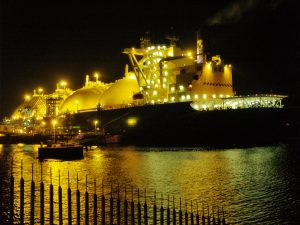 It’s hard to overstate the growing importance of natural gas in the global energy marketplace, and the scale and mood of June’s World Gas Conference in Washington DC bore witness to the resurgent confidence of the global gas industry. With over two thousand delegates and 300 companies exhibiting in the hall, the conference reflected an industry that feels positive about its future and willing to address issues such as fugitive emissions.
It’s hard to overstate the growing importance of natural gas in the global energy marketplace, and the scale and mood of June’s World Gas Conference in Washington DC bore witness to the resurgent confidence of the global gas industry. With over two thousand delegates and 300 companies exhibiting in the hall, the conference reflected an industry that feels positive about its future and willing to address issues such as fugitive emissions.
In 2011, the International Energy Agency talked about a potential “Golden Age of gas”. That suggestion attracted some derision at the time, as the flattening costs of renewables and the persistent growth of Asian coal use appeared to preclude a significant global shift to gas. Seven years on, the positive view of gas – and its production and use — has been largely vindicated, at least for now.
Much was made about the coal rebound in 2017, where non-OECD economies were thriving and keen to use cheap fuel to continue to do so. Lost in that thread was the fact that gas consumption made a far bigger jump, posting its biggest growth in nearly a decade — with demand in China surging by 10 percent. Global investors have poured huge sums into new production, pipelines, and LNG plants.
Yet, even with that new supply, the appetite only continues to grow. Whether China actually becomes a huge market for U.S. LNG might remain an open question for now. Western Europe and Central America have already subscribed to large quantities of US natural gas. Whether it’s support for expanding industries, fuel switching, or new fleets of gas-powered vehicles, the world’s energy infrastructure is being built for the ‘Golden Age’.
However, a continuing threat to the growth of gas is the rate of methane leakage from wells, pipelines, and plants which was recently found to be 60% higher than the EPA inventory estimate. Given that the warming potential of methane is roughly 30 times greater than CO2, the problem of fugitive emissions has drawn the attention of both environmentalists and industry groups. While most of the industry speakers saw the “fugitive emissions” problem as one that can be solved, EPA representatives suggested the agency was content to let the industry address the issue without policy coming from Washington. EPA spokesman Bill Wehrum praised voluntary agency programs for companies to curb methane pollution, saying “These programs are some of the best of what government can do.” While voluntary approaches are helpful, they are arguably not sufficient, and most people in the industry would probably prefer a light but sensible regulation now, to a punitive one further down the line.
It surprises me that the gas companies don’t view fugitive emissions as lost profit. Wouldn’t it be in their best interest to monetize the emissions? I think the gas companies… Read more »
Mike: What renewable, low carbon alternatives do you think are best to deal with the intermittent and variable nature of wind and solar? It is undeniable that variable renewable energy… Read more »
Bruce … There are lots of new papers out there talking about just what is required by “Upgrading the grid”. If we continue to think only of central generated and… Read more »
Robert: The correct question is how important is the threat to civilization from natural gas (NG)? NG is 87 times more powerful than CO2 as a greenhouse gas over a… Read more »
Gas’s Golden Age … It’s all about the money. • The Shale Revolution is based in part on “high and extreme” resource estimates from EIA; “The U.S. would be well… Read more »
Dear Robert, thank you for raising this important issue. Many comments have already been made, but a two thoughts that I would bring up: 1. EPA needs to allow for… Read more »
Greg: NG is replacing coal because it is cheaper, not because it is better for climate. As I pointed out above, NG is as bad, if not worse, than coal… Read more »